Plenary Session Recordings are Available
Accelerating Technology Development
The challenge of reaching net zero Carbon by 2050 will require the aerospace and power generation sectors to change the time scale required to develop and implement technology: From decades to years. The panel aims to bring together knowledge from a wide range of sectors that have undergone transformational change.
Panelists:

David Pitchforth, Ex-President of Boeing Defense, Space & Security and Managing Director and Chairman of Jaguar Racing Formula-1 Team
Bio: David Pitchforth recently retired as president of Boeing Defense, Space & Security (BDS) Global Operations, responsible for Boeing’s global subsidiaries, Boeing Defence Australia, Boeing Defense Saudi Arabia, Boeing Defense India and Boeing Defence United Kingdom. In his role as president, Pitchforth reports directly to BDS president and CEO Leanne Caret. He was named to this position in December 2016. Pitchforth also serves as managing director of Boeing Defence UK. Pitchforth joined Boeing in January 2009 as managing director for Boeing’s UK Rotorcraft Support business. Responsible for coordinating the company’s rotorcraft support activities and business development in the UK, Pitchforth was the single customer interface for the Ministry of Defence (MOD) in this area of Boeing’s UK business. This included the UK portfolio of rotorcraft support activities of Apache Integrated Operational Support programme; and the highly successful Chinook Through Life Customer Support programme. Before joining Boeing, Pitchforth was senior vice president, UK Government Business Unit and Westland Helicopters transformation director for AgustaWestland, now Leonardo Helicopters. Along with the set-up and lead for all business with the MOD and other government agencies, David was responsible for AgustaWestland’s transformation associated with the defence industrial strategy and strategic partnering between the company and the MOD. Until March 2005 Pitchforth was managing director and chairman of Jaguar Racing Formula-1 team, a role that he undertook at the request of Ford Motor Company. Taking over the company in a troubled state, he completed a full organisational restructuring of the company and engineering disciplines resulting in improved performance while delivering a 31% reduction in cost. Originally from Yorkshire, England, Pitchforth spent the first 15 years of his career in Europe and North America’s automotive transportation industries working with turbochargers and high-speed fans for a tier-1 equipment, research, and technology supplier.
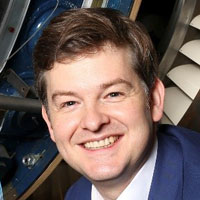
Prof Rob Miller FRAeS, Director the Whittle Laboratory, University of Cambridge
Bio: Rob Miller is Professor of Aerothermal Technology, Director of the Whittle Laboratory and Director of the Rolls-Royce Whittle University Technology Centre at the University of Cambridge. He is a Fellow of the Cambridge Institute of Sustainable Leadership and a Fellow of the Royal Aeronautical Society. In 2014 he set up and led the UK EPSRC Centre of Doctoral Training in Gas Turbine Aerodynamics. His research focuses on the decarbonisation of the aerospace and the power generation sectors. He is passionate about the practical applications of research, holding 11 patents and working closely with industries such as Rolls-Royce, Mitsubishi Heavy Industries, Siemens and Dyson. Since 2012 Rob Miller has led a team which developed the Rapid Technology Development Process at the Whittle Laboratory which has cut the time to design, manufacture and test technologies by a factor of between 10 and 100 (form months to days). His research has been awarded the Institution of Mechanical Engineers Thomas Hawksley Gold Medal 2010, the American Institute of Aeronautics and Astronautics Air Breathing Propulsion Award 2008, American Society of Mechanical Engineers Best Paper Awards in 2005, 2007, 2008, 2010, 2014, 2015, 2016 and 2019 and the American Society of Mechanical Engineers Gas Turbine Award 2010, 2014 and 2015.
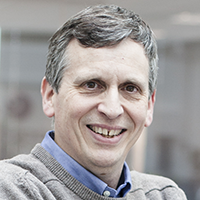
Paul Clarke, Chief Technology Officer, Ocado
Bio: Paul Clarke CBE is Chief Technology Officer at Ocado - a world leader in smart fulfilment and logistics. After joining Ocado in 2006, Paul initially worked on warehouse control systems and then joined the team designing Ocado’s next highly automated fulfilment centre. After establishing new teams for Simulation and Mobile development, Paul then co-wrote the first of Ocado’s award winning mobile apps. Ocado Technology, with its 2200+ engineers, is responsible for building all the technology that powers Ocado's end-to-end e-commerce, fullfilment and logistics platforms. Ocado are now busy signing deals with large bricks & mortar grocery retailers around the world who wish to use the Ocado Smart Platform to operate online grocery scalably, sustainably and profitably. Having handed over the leadership of Ocado Technology in April 2018, Paul now leads the Office of the CTO (OCTO) whose mission includes exploring opportunities to use Ocado's technologies and competencies to disrupt other sectors, research activities and the technology vision and future proofing of the business. Paul read Physics at St John's College, Oxford before then entering the computer industry. He has worked in software engineering, consultancy, interim management and a number of software start-ups. Paul sits on a number of government and industry advisory boards including: AI Council, Robotics Growth Partnership (co-chair), National Food Strategy Advisory Board and ISCF Future Flight. In what little spare time he has alongside his work and family, Paul loves to invent and build stuff, design PCBs, write software and generally tinker.
Moderator:
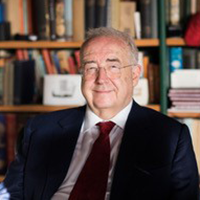
David Cleevely, Chairman, the Raspberry Pi Foundation
Bio: David Cleevely CBE FREng, FIET is the Chairman of the Raspberry Pi Foundation. He is the founder and former Chairman of telecoms consultancy Analysys (acquired by Datatec International in 2004). In 1998, he co-founded the web based antibody company Abcam (ABC.L) with Jonathan Milner and was Chairman until November 2009. He has co-founded several other companies and is Chairman of two of them, including the award winning restaurant “Bocca di Lupo” and its gelateria subsidiary, Gelupo. He has been a director of two quoted companies. He has been active in promoting Cambridge. He was a prime mover behind Cambridge Network, co-founder of Cambridge Wireless, co-founder and Chairman of Cambridge Angels, Founding Director of the Centre for Science and Policy at the University of Cambridge and Vice Chair of the Cambridgeshire and Peterborough Independent Economic Commission. Other policy work has included membership of the IET Communications Policy Panel, the Ofcom Spectrum Advisory Board and the Enterprise Committee and the National Engineering Policy Group at the Royal Academy of Engineering. From 2001 to 2008 he was a member of the Ministry of Defence Board overseeing information systems and services (DES-ISS, formerly the Defence Communications Services Agency). In addition to Raspberry Pi, his charitable work includes the Cambridge Science Centre, which he helped set up and fund in 2013 and continues as Chair. After being sponsored to study Cybernetics at Reading by Post Office Telecommunications, he joined their Long Range Studies Division. A PhD at Cambridge was then followed by the Economist Intelligence Unit in London. He is a Fellow of the Royal Academy of Engineering and the IET. He was elected a Fellow Commoner of Queens College, Cambridge in 2013 and an Honorary Fellow of Trinity Hall in 2015. He was awarded a CBE in the Queen’s New Year Honours List in 2013.
The Challenge of Reaching Net Zero Carbon by 2050
Wednesday, September 23, 2020
8:00 – 9:00 am EDT
The UK government has committed to net zero carbon by 2050. Achieving this will require a governments and industries to work together. The panel will bring together leading figures in both government, environmental leadership and industry to discuss practical issues involves with the policy, investment, time scales and partnership which need to developed to make it happen.
Panelists:
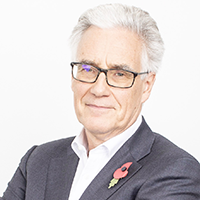
Lord Turner, Chairman, Energy Transitions Commission
Bio: Lord Turner chairs the Energy Transitions Commission, a global coalition of major power and industrial companies, investors, environmental NGOs and experts working out achievable pathways to limit global warming to well below 2˚C by 2040 while stimulating economic development and social progress. He was chairman of the Institute for New Economic Thinking until January 2019, where he remains a Senior Fellow. He is Chairman of Chubb Europe and on the Advisory Board of Envision Energy, a Shanghai-based group focussed on renewable energy, batteries and digital systems. From 2008-2013, Lord Turner chaired the UK’s Financial Services Authority, and played a leading role in the post crisis redesign of global banking and shadow banking regulation. Lord Turner has held high profile roles in public policy: he was Director General of the Confederation of British Industry (1995-2000); chairman of the UK Low Pay Commission (2002-2006); chairman of the Pensions Commision (2003-2006); he was the first chairman of the Climate Change Committee (2008-2012) an independent body to advise the UK Government on tackling climate change. The recommendations set out in their first report "Building a low-carbon economy” were adopted in 2009. He became a cross bench member of the House of Lords in 2006. Amongst his business roles, Lord Turner was at McKinsey&Co (1982-1995); was Vice- Chairman of Merrill Lynch Europe (2000-2006) and a Non-Executive Director of a number of companies, including Standard Chartered plc (2006-2008). He is Senior Fellow at the Centre for Financial Studies (Frankfurt) and a Visiting Fellow at the People’s Bank of China School of Finance, Tsinghua University (Beijing). He writes regularly for Project Syndicate, and has published "Between Debt and the Devil" (Princeton 2015), and Economics after the Crisis (MIT 2012). He is a Trustee Emeritus of the British Museum, honorary fellow of The Royal Society, and received an Honorary Degree from Cambridge University in 2017.
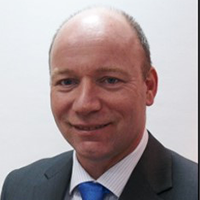
Prof Frank Haselbach, Chief Engineer, Rolls-Royce, Large Engine Programmes, Rolls-Royce Engineering Fellow
Bio: As Chief Engineer – Large Engine Programmes, Frank Haselbach looks after all in-production Trent engine marks (Trent XWB, Trent 1000/7000) as well as New Product Introduction. He also is accountable for Future Programmes engineering and Research & Technology. In addition, the whole engine, system design as well as component engineering organisation is reporting into Frank. Based in Derby, UK, and positioned in the civil aerospace business sector he leads the whole engine architecture, functional and mechanical design of all large civil aerospace products. Prior to this, Frank held executive roles for System Design & Sub-system design and he was Executive Vice President for the Combustion & Casings Supply Chain Unit within Rolls-Royce. He has served as a senior engineer in the company since 22 years in various roles in Germany and the United Kingdom. He has operated businesses and worked with customers, teams and suppliers in Europe, Asia and America. As an elected Rolls-Royce Engineering Fellow and Visiting Professor for the University of Oxford he also holds a doctorate in mechanical engineering. He is a chartered engineer, member of the DGLR in Germany and Fellow of the Royal Aeronautical Society.
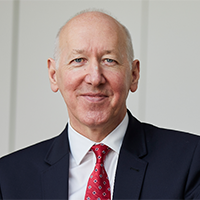
Stephen Scrimshaw, Managing Director, Gas and Power, Siemens plc.
Bio: Stephen Scrimshaw has recently been appointed as Vice President of Siemens Energy for the U.K. and Ireland following carve out in April 2020. The new organisation operates across the full spectrum of the energy supply and distribution chain and has over 3600 employees distributed across 13 service, projects and manufacturing sites in the UK and Ireland. Steve has worked for Siemens since 1998 initially in the Power business, but then moved to head up their London based Rail Business for almost 10 years. He has worked in various roles for Mitsui Babcock Energy Services and the Rolls-Royce Industrial Power Group before joining Siemens.
Moderator:
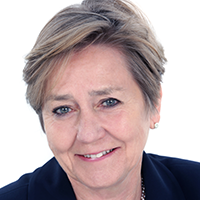
Dame Polly Courtice, Director, Cambridge Institute for Sustainability Leadership
Bio: Polly Courtice is Founder Director of the University of Cambridge Institute for Sustainability Leadership (CISL), which since its foundation in 1988 has grown to become an internationally recognised centre of excellence in sustainability leadership. She is also Founder Director of The Prince of Wales's Business & Sustainability Programme, and Academic Director of the University’s Master of Studies in Sustainability Leadership. She is Chair of the Faculty Board of Engineering, a Director of Judge Business School Executive Education Limited, and a member of the University’s Environmental Sustainability Strategy Committee. She is a By-Fellow of Churchill College and an Honorary Fellow of Murray Edwards College, Cambridge.
External appointments: Polly is a Director of Jupiter Green Investment Trust and a Non-Executive Director of Anglian Water Services Ltd. She is a Board Advisor to the British Standards Institute and serves on the environmental/sustainability advisory boards for AstraZeneca, Lloyds Banking Group and Nespresso. She is a member of the judging panel for the Queen’s Award for Sustainable Development, and Chair of the Unilever Young Entrepreneurs Awards.
Honours and awards: In 2016 she was nominated by the University of Cambridge and appointed Dame Commander of the Order of the British Empire (DBE) for services to Sustainability Leadership. Prior to that in 2008 Polly had been made a Lieutenant of the Victorian Order (LVO) announced in the Queen's Birthday Honours list. In 2015 she received Stanford University's Bright Award for Environmental Sustainability which recognises ‘an individual who has made unheralded contributions to environmental sustainability’. In 2016 she received a Lifetime Achievement Award at Ethical Corporation’s annual Responsible Business Awards, and in 2018 she received Business Green's Lifetime Achievement Award.
Polly holds a BA from the University of Cape Town and an MA from the University of Cambridge.